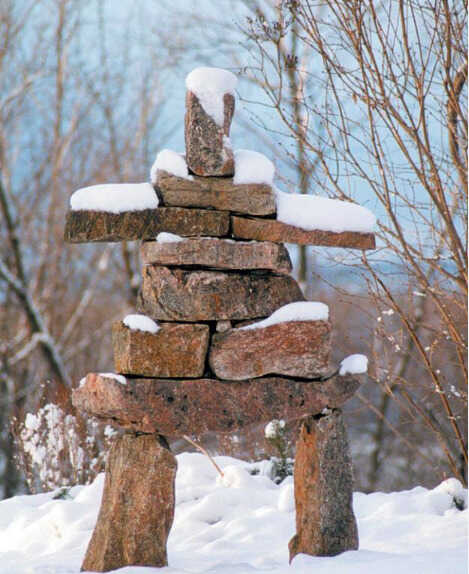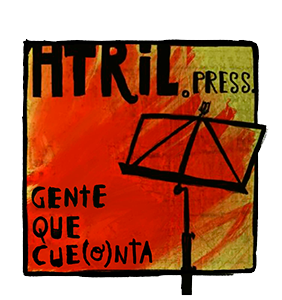
Everything is frozen and deserted.
The landscape is not even white, it is gray, like the soul of that pilgrim who walks, whipped by the icy wind, dragging his feet on uncertain terrain; lost in the immensity of the endless steppe, in the infinity of a desolate planet.
This is how our character feels. I have certainly been there.
Suddenly, on the horizon, a figure, almost human, is seen. While approaching, our walker realizes that it is a sculpture made of rocks.
It’s an Inukshuk.
In the language of the Inuit (Canadian First Nations, inhabitants of the Arctic), it means “in the likeness of a human”. They were built in the vastness of the boreal tundra to guide passers-by, to keep them away from dangers and to point out places of abundance, good hunting, fishing, and firewood.
They marked places of reverence, sacred territory.
Shelter, heat, light in the midst of the storm.
This story comes to mind because I recently participated as a volunteer in a grief session.
This time I belonged to the panel, but until not long ago, I was one of the participants. Fragile and defenseless, like those who accompanied us that Saturday afternoon. Lost and hopeless in a dark and frozen place.
As Alphonse de Lamartine said, “Sometimes, only one person is missing and the whole world seems depopulated.”
But there we were, in the community library, this time me, honored to be part of those people who once built me an Inukshuk.
A rock made of generosity, of solidarity, that reminds us that we are not alone. Something very similar to hope, that which one thought had disappeared.
I recently received my five-year “Grief Support” volunteer badge along with a pin that says:
Kindness is everything.
I will forever treasure that pin.

Leonor Henríquez (Caracas, Venezuela) Civil Engineer by training (UCAB 1985), writer and apprentice poet by vocation. From her time in engineering emerged her Office Stories (1997), another way of seeing the corporate world. Her latest publications include reflections on grief, Hopecrumbs (2020) (www.hopecrumbs.com) and “The Adventures of Chispita” (2021) (www.chispita.ca) an allegory of life inside Mom’s belly.
Today she shares her “impulsive meditations” from Calgary, Canada, where she lives.
leonorcanada@gmail.com
